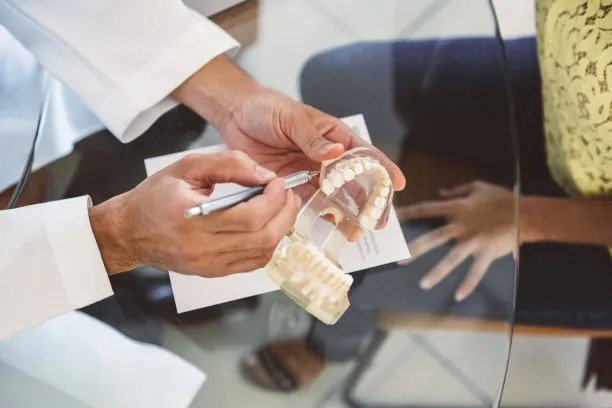Summary: Dental fillings are a common dental procedure that can help restore the functionality and aesthetics of a tooth affected by cavities or damage. However, ensuring a successful experience with dental fillings requires careful preparation and aftercare. This article outlines essential tips to not only ensure a smooth filling process but also promote long-lasting oral health. It covers pre-appointment preparations, understanding the filling procedure, optimal aftercare practices, and the importance of regular dental check-ups. Together, these strategies will help patients achieve the best possible outcomes from their dental fillings and maintain their oral hygiene effectively.
1. Preparation for Your Dental Filling Appointment

Before heading to your dental appointment, proper preparation is crucial for a successful filling experience. Begin by discussing any concerns or anxieties you may have with your dentist. Understanding the procedure can alleviate fears and construct a patient-dentist rapport. Prepare a list of questions to ask your dentist, which allows you to take an active role in your oral care and ensure all your doubts are addressed.
Additionally, it is wise to review your medical history prior to the appointment. Inform your dentist about any medications you are currently taking, allergies, or previous dental issues. This information can help your dentist make informed decisions regarding anesthetics and techniques tailored to your specific health situation, reducing the risk of complications during the procedure.
Finally, plan your logistics for the day of the appointment. Since various types of anesthesia may be used, arranging for a ride home can relieve stress and enhance comfort. This way, you can focus on healing and recovery rather than transportation concerns.
2. Understanding the Dental Filling Procedure
Gaining a clear understanding of the dental filling procedure bolsters confidence and eases anxiety around the treatment. Typically, the process starts with a thorough examination of your affected tooth, followed by the application of a local anesthetic to numb the area. This makes the procedure pain-free while maintaining your comfort throughout.
Once the area is numb, your dentist will remove any decay using specialized tools. It is essential to understand that this step is crucial, as it ensures that all decayed tissue is eliminated, promoting a successful filling. Following this, the filling material鈥攅ither composite resin, amalgam, or another type鈥攚ill be properly placed and shaped according to the contours of your tooth.
Lastly, the dentist will polish the filling to ensure it feels comfortable in your mouth. This entire procedure usually lasts no longer than an hour, emphasizing the efficiency and effectiveness of modern dental practices. Being aware of these steps can help demystify the process and make it feel less intimidating.
3. Optimal Aftercare Practices for Fillings
After receiving a dental filling, following appropriate aftercare practices is vital to ensure the longevity of your filling and overall oral health. First and foremost, adhere to any specific instructions given by your dentist. This may include avoiding certain foods or beverages for a few hours following the appointment until the anesthetic wears off, as your mouth may feel numb and sensitive.
Moreover, practicing good oral hygiene habits plays a significant role in maintaining your dental filling. Brush your teeth at least twice a day and floss regularly, particularly around the filled tooth. This helps to prevent plaque buildup, which can lead to further decay and compromise the integrity of the filling.
It鈥檚 also advisable to avoid hard or sticky foods post-procedure to prevent damaging the new filling. Incorporating softer foods, such as yogurt and soup, into your diet for a few days can minimize discomfort and ensure a smoother transition after your dental work.
4. Importance of Regular Dental Check-ups
One of the most effective strategies for promoting long-lasting oral health after a dental filling is attending regular dental check-ups. These appointments allow your dentist to monitor the condition of your fillings and identify any signs of potential issues before they become significant problems. Scheduled visits twice a year create opportunities to maintain and enhance your overall dental health.
Additionally, professional cleanings performed during these check-ups can significantly reduce the risk of cavities and gum disease, which can adversely affect your fillings. Your dentist can also provide personalized tips tailored to your dental hygiene practices, ensuring you receive support in achieving optimal oral health.
Lastly, addressing any new dental concerns promptly, like sensitivity or discomfort, can prevent complications and maintain the effectiveness of your fillings. Regular check-ups establish a preventative mindset that fosters a healthier mouth for years to come.
Summary: Ensuring a successful experience with dental fillings involves adequate preparation, a clear understanding of the procedure, diligent aftercare, and regular dental visits. By following these essential tips, patients can increase the effectiveness of their fillings and enhance long-term oral health. Remember, taking care of your smiles today promises healthier teeth tomorrow.
This article is compiled by Vickong Dental and the content is for reference only.
Vickong Dental
Vickong Dental is a large medical group established in Hong Kong in 2008 by professors from well-known medical universities in Guangdong and Hong Kong, as well as medical doctors from key national '985' universities (including Master's supervisors and senior professors). The chain of branches brings together expert dentists with PhDs and Master's degrees from Hong Kong and Mainland China, committed to providing high-quality dental treatment.
"Vickong Dental Practices the University Motto of 'Healing and Serving Society,' with a Stable Operation for Sixteen Years. It Has Been honored with Hong Kong Enterprise Leaders's Choice,' and is a Global Trusted Implant Center for the Nobel Implant System. Recommended by Hong Kong Metro Broadcast and Guangdong Television, it Serves Customers from Over Thirty Countries and Regions, Gaining the Trust and Favor of Citizens from the Guangdong-Hong Kong-Macau Greater Bay Area and Surrounding Cities.

Thousands of customers' unanimous praise
The most recognized and highly recommended dental service by customers in the Guangdong-Hong Kong-Macau Greater Bay Area
We Ensure You Receive Detailed Care and Attention Here
Hong Kong standards, Shenzhen prices, Your Trusted English-speaking dentists

Vickong Dental Medical-Grade Instrument Disinfection Process
Vickong Dental Medical-Grade Instrument Disinfection Process

Vickong Dental Chain: A Warm and Comfortable Environment for Treatment






Appointment Hours

Q&A
Why choose Vickong Dental?
Vickong Dental practices the university motto 「Medicine to Benefit Society」, with each branch bringing together highly qualified dentists with doctoral and master’s degrees from Hong Kong and the Mainland, and has maintained seventeen years of steady operation。Recipient of 「2024 Hong Kong Enterprise Leaders Brand」, 「2025 Hong Kong Enterprise Leaders Brand」, a Nobel Biocare Global Trusted Implant Center, and a brand recommended by Metro Radio Hong Kong and Guangdong TV。
To date, we have served customers from more than thirty countries and regions,earning exceptionally high word-of-mouth recognition and trusted recommendations from residents across the Guangdong-Hong Kong-Macao Greater Bay Area and surrounding cities
We have eight major branches in Zhuhai、Shenzhen,and a consultation and service assurance center in Hong Kong,so you can book a free consultation at any time for any questions,which is very reassuring.
If I do not accept the quotation after the CT scan, will I be charged??
No! As long as the actual treatment has not started, you will not be charged any fees.
Will there be any additional charges during the treatment process?
No, there won’t be any additional charges. Before treatment begins, we will clearly explain the treatment plan and its corresponding fees. Only after the patient agrees and signs the consent form will we proceed with the dental service.
Can I pay in Hong Kong dollars?
Yes. Vickong Dental accepts payment in Hong Kong dollars. The amount will be converted based on the exchange rate of the day, and the applicable rate will be clearly communicated to you in advance.
Can I reschedule my appointment at any time?
Yes. Please contact us via **WeChat** or **WhatsApp** as early as possible, providing your original appointment time and details, along with your preferred new date and time slot for rescheduling.













